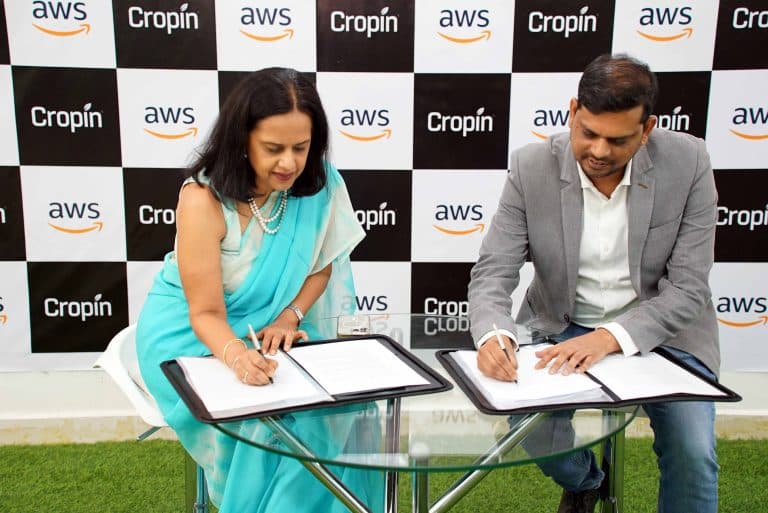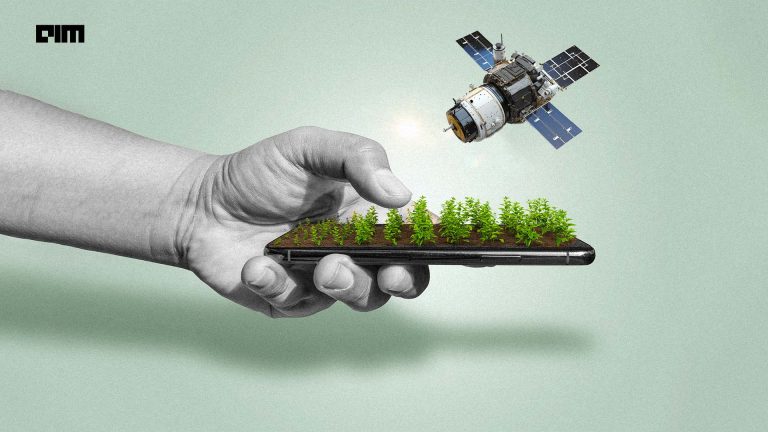Artificial intelligence is being applied in every nook and corner of human endeavours but agriculture had fallen behind its adoption. The Narendra Modi-led BJP government had, in fact, underlined several policies which sought to double the farmer’s income by 2022. To do this, the government needs to increase productivity and also make sure that uncertainties are controlled to make the farmer’s life easier.
The latest budget for 2018-19 has taken the objective of DFI (Doubling Farmer’s Income) very seriously and sensed the urgency of the situation. Very recently the government has announced schemes like Soil Health Card, Pradhan Mantri Krishi Sinchayee Yojana, Pradhan Mantri Fasal Bima Yojana, Neem-coating of Urea and e-NAM (electronic National Agriculture Market) for achieving the ambitious target of doubling incomes for the farmers and at the same time continue agricultural growth.
Bringing AI To The farms
Many farmers in Andhra Pradesh and Karnataka patiently wait for expert opinions and communication before sowing the seeds. This is a departure from the trend and not too many farmers have adopted new technology to seek expert opinion. But early signs of technology usage in farms are promising. The age-old injustice of farmers not getting due prices for crops can be solved by solving information asymmetry. This needs democratic spread and dissemination of data and crucially new knowledge.
Through various efforts of making farming information and data easily available farmers from various states also get automated calls to protect their crops from pests and weeds. These predictions are based on weather conditions and other factors. Statistical prediction and machine learning to play an important part in this process. Similar experiment that runs in Karnataka alert farmers to plan for Minimum Support Price (MSP) sometimes three months in advance.
Technologies like cloud computing, satellite image analysis and machine learning are revolutionising agriculture and helping farmers predict their near future. The timely delivery of weather information and prices can change the farmer’s life for the better and at the same time can help many startups who are looking to innovate. A better percentage of market value can be captured by the producers and the data infrastructure can be provided by Aadhaar which will make it easier to monitor and evaluate various schemes.
AI Helping Higher Yields
It has been reported that AI-based sowing advice from experts has lead to 30% higher yields. Dr Suhas P Wani, director, Asia Region, of the International Crop Research Institute for the Semi-Arid Tropics (ICRISAT), a non-profit agricultural research body, says, “Sowing date as such is very critical to ensure that farmers harvest a good crop. And if it fails, it results in loss as a lot of costs are incurred for seeds, as well as the fertiliser applications.”
ICRISAT worked with Microsoft to launch an AI-based sowing app which is powered by Microsoft Cortana Intelligence Suite. The idea again is that AI-powered engine processes a lot of data and sends advice to the farmers about the date to sow and other advice. There is no need for farmers to install any other sensor and capital expenditure. All this experiment needs is a simple phone which can receive text messages.
This technology works all over the world. Another story of a farmer from Andhra Pradesh decided to wait for sowing the seeds while all others were busy following the herd. He only followed the advisory and sowed it after he received directions. The farmer Chinnavenkateswarlu achieved 30% higher yield said, “I have three acres of land and sowed groundnut based on the sowing recommendations provided. My crops were harvested on October 28 last year, and the yield was about 1.35 ton per hectare. Advisories provided for land preparation, sowing, and need-based plant protection proved to be very useful to me.”
When looked at carefully the work done in AI in Indian agriculture falls into three major categories:
- Soil and crop monitoring where companies use sensors and IoT technologies to monitor crop and soil health.
- Predictive Agricultural Analytics where companies use machine learning to help farmers plan for sowing and reaping calendars.
- Supply Chain Efficiencies is where companies try to use analytics to optimise the supply chain.
AI For Agricultural Policymakers
The use of AI can work not only for farmers but for agricultural policymakers as well. Microsoft recently signed an MoU with the Karnataka Agricultural Price Commission (KAPC), Department of Agriculture to help with the forecasting to assist policymakers. Dr TN Prakash Kammardi who is the chairman of the commission, said, “We are certain that digital agriculture supported by advanced technology platforms will truly benefit farmers. We believe that Microsoft’s technology will support these innovative experiments which will help us transform the lives of the farmers in our state. ‘’
Recently many startups have also jumped in the fray to innovate and help the farmers in the country. The Department of Industrial Policy and Promotion (DIPP), said that the equity inflow of about $2.45 billion has gone into agricultural and food processing sector. This kind of investment can help new companies and startups. CropIn is one such Bengaluru-based startup which strives to bring intelligence to the agricultural sector. Other startups like Fasal which work in climate prediction sector has also been helping many farmers.
































